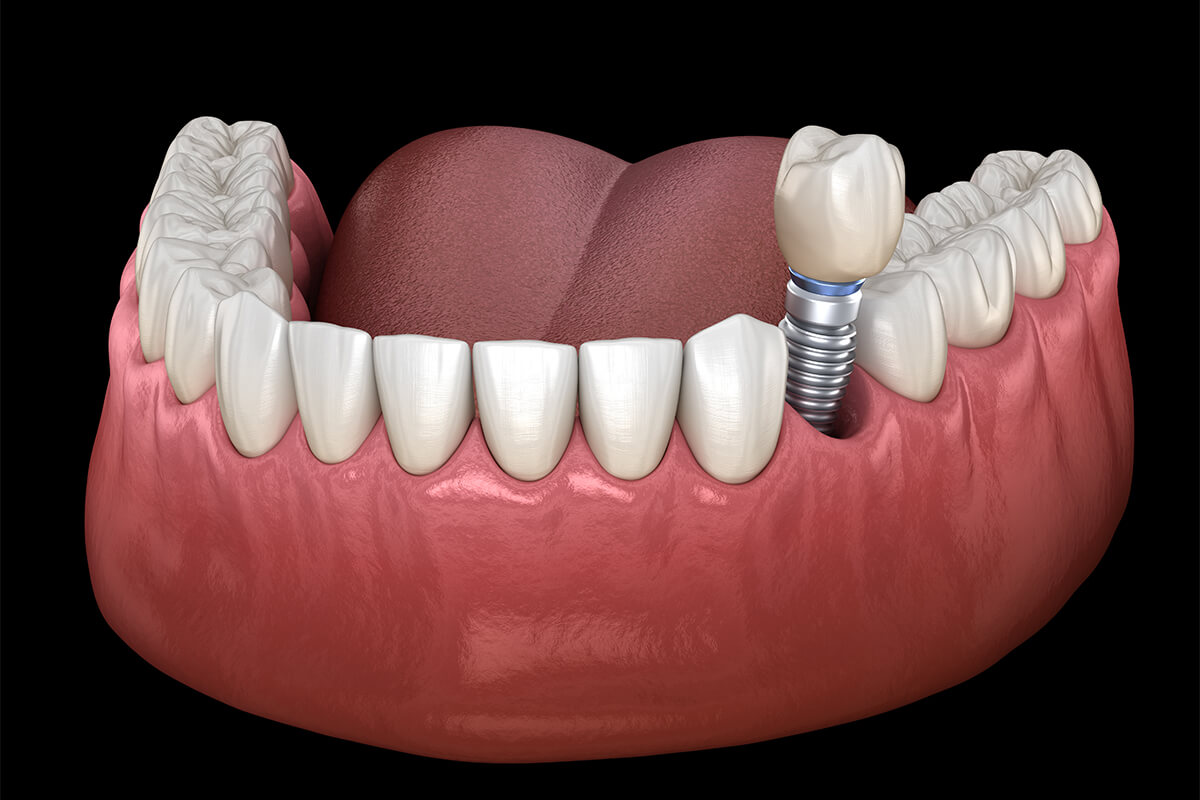Pay Online
Are You eligible for Dental Implants?

In the realm of modern dentistry, dental implants have revolutionized the restoration of missing teeth, offering patients a durable and natural-looking solution. However, not everyone may be eligible for this transformative treatment. Determining one’s eligibility for dental implants involves various factors, including oral health, bone density, and overall medical condition. In this comprehensive guide, we delve into the criteria that determine eligibility for dental implants, exploring the benefits, considerations, and alternatives along the way.
Understanding Dental Implants:
Before delving into eligibility criteria, it’s essential to grasp the basics of dental implants. Dental implants are titanium posts surgically inserted into the jawbone to serve as artificial tooth roots. These posts provide a stable foundation for prosthetic teeth, such as crowns, bridges, or dentures, effectively restoring both function and aesthetics to the smile.
Benefits of Dental Implants: The benefits of dental implants extend beyond mere cosmetic enhancement. They offer improved chewing ability, speech clarity, and overall oral health. Unlike traditional dentures, implants are securely anchored in the jawbone, preventing bone loss and maintaining facial structure. Additionally, dental implants are designed to last a lifetime with proper care, making them a long-term investment in oral well-being.
Factors Influencing Eligibility:
While dental implants offer a host of advantages, not everyone is a suitable candidate for this treatment. Several factors influence eligibility, including:
1. Oral Health: Good oral health is paramount for successful implantation. Candidates should be free from gum disease, cavities, and other oral infections that could compromise the implant’s integration with the jawbone.
2. Sufficient Bone Density: Adequate bone density is necessary to support the dental implant. Patients with significant bone loss may require bone grafting procedures to augment the jawbone before implant placement.
3. Overall Health: General health plays a crucial role in implant candidacy. Conditions such as uncontrolled diabetes, immune disorders, and certain medications may affect healing and increase the risk of implant failure.
4. Smoking Habits: Smoking impedes the body’s ability to heal and can significantly diminish the success rate of dental implants. Candidates are often advised to quit smoking before undergoing implant surgery.
5. Age: While age alone does not disqualify someone from receiving dental implants, older adults may experience greater bone density loss, which could impact implant success.
Assessing Eligibility:
Determining eligibility for dental implants typically involves a comprehensive evaluation by a qualified dental professional. This assessment may include:
1. Dental Examination: A thorough examination of the teeth and gums helps identify any existing oral health issues that need to be addressed before implant placement.
2. Imaging Studies: X-rays, CT scans, or panoramic images provide detailed information about bone structure and density, allowing the dentist to assess the feasibility of implant surgery.
3. Medical History Review: A review of the patient’s medical history helps identify any underlying health conditions or medications that may affect implant treatment.
4. Treatment Planning: Based on the findings from the evaluation, the dentist develops a personalized treatment plan tailored to the patient’s needs and circumstances.
Alternatives to Dental Implants:
For individuals who may not be eligible for dental implants, several alternative treatments are available, including:
1. Traditional Dentures: Removable dentures are a conventional option for replacing missing teeth, offering a more affordable solution for those unable to undergo implant surgery.
2. Dental Bridges: Bridges consist of prosthetic teeth anchored to adjacent natural teeth or dental implants, providing a fixed restoration for one or more missing teeth.
3. Mini Implants: Smaller in diameter than traditional implants, mini implants are suitable for patients with insufficient bone density or those seeking a less invasive alternative.
3. Bone Grafting: Bone grafting procedures can augment the jawbone to improve bone density and support implant placement in patients with significant bone loss.
Dental implants have transformed the landscape of restorative dentistry, offering a reliable and long-lasting solution for missing teeth. However, eligibility for implant treatment depends on various factors, including oral health, bone density, and overall medical condition. By undergoing a comprehensive evaluation and discussing treatment options with a qualified dentist Greeley, individuals can determine whether dental implants are the right choice for restoring their smile. Regardless of eligibility, alternative treatments are available to address each patient’s unique needs and preferences. Ultimately, the goal is to achieve optimal oral health and function, allowing individuals to smile with confidence for years to come.





